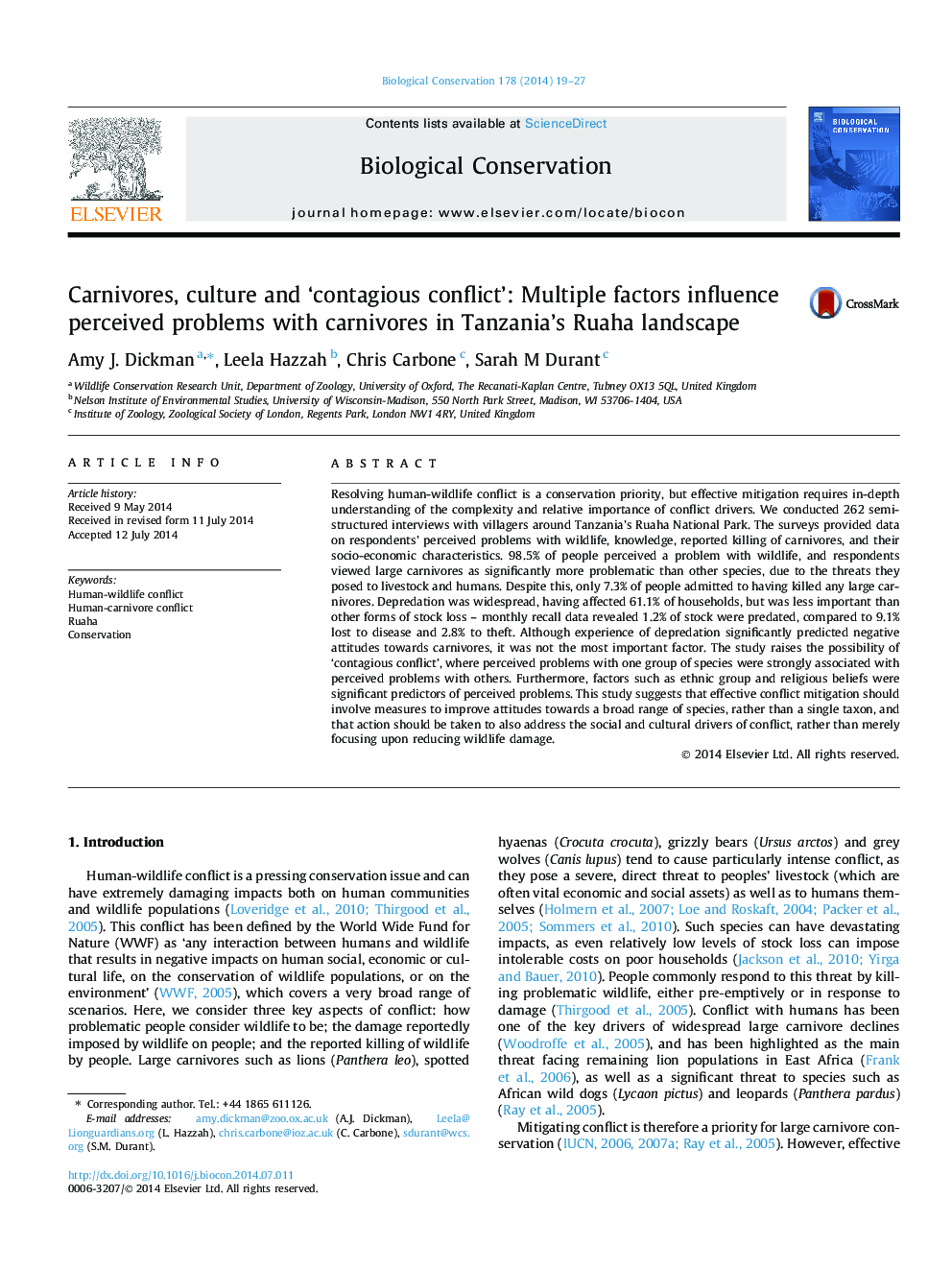| کد مقاله | کد نشریه | سال انتشار | مقاله انگلیسی | نسخه تمام متن |
|---|---|---|---|---|
| 6299497 | 1617923 | 2014 | 9 صفحه PDF | دانلود رایگان |
عنوان انگلیسی مقاله ISI
Carnivores, culture and 'contagious conflict': Multiple factors influence perceived problems with carnivores in Tanzania's Ruaha landscape
ترجمه فارسی عنوان
گوشتخوار، فرهنگ و "درگیری مسری": عوامل متعدد بر مشکلات درک شده با گوشتخواران در چشم انداز روحیه تانزانیا تاثیر می گذارد
دانلود مقاله + سفارش ترجمه
دانلود مقاله ISI انگلیسی
رایگان برای ایرانیان
کلمات کلیدی
مناقشات انسان و حیات وحش، مناقشه انسانی-گوشتخوار، روحا، حفاظت،
موضوعات مرتبط
علوم زیستی و بیوفناوری
علوم کشاورزی و بیولوژیک
بوم شناسی، تکامل، رفتار و سامانه شناسی
چکیده انگلیسی
Resolving human-wildlife conflict is a conservation priority, but effective mitigation requires in-depth understanding of the complexity and relative importance of conflict drivers. We conducted 262 semi-structured interviews with villagers around Tanzania's Ruaha National Park. The surveys provided data on respondents' perceived problems with wildlife, knowledge, reported killing of carnivores, and their socio-economic characteristics. 98.5% of people perceived a problem with wildlife, and respondents viewed large carnivores as significantly more problematic than other species, due to the threats they posed to livestock and humans. Despite this, only 7.3% of people admitted to having killed any large carnivores. Depredation was widespread, having affected 61.1% of households, but was less important than other forms of stock loss - monthly recall data revealed 1.2% of stock were predated, compared to 9.1% lost to disease and 2.8% to theft. Although experience of depredation significantly predicted negative attitudes towards carnivores, it was not the most important factor. The study raises the possibility of 'contagious conflict', where perceived problems with one group of species were strongly associated with perceived problems with others. Furthermore, factors such as ethnic group and religious beliefs were significant predictors of perceived problems. This study suggests that effective conflict mitigation should involve measures to improve attitudes towards a broad range of species, rather than a single taxon, and that action should be taken to also address the social and cultural drivers of conflict, rather than merely focusing upon reducing wildlife damage.
ناشر
Database: Elsevier - ScienceDirect (ساینس دایرکت)
Journal: Biological Conservation - Volume 178, October 2014, Pages 19-27
Journal: Biological Conservation - Volume 178, October 2014, Pages 19-27
نویسندگان
Amy J. Dickman, Leela Hazzah, Chris Carbone, Sarah M Durant,
